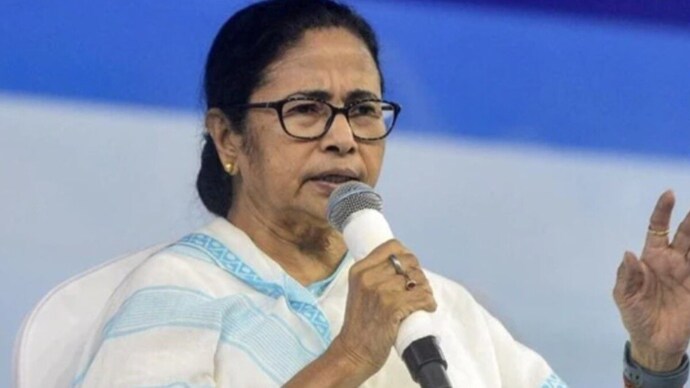Mamata Banerjee’s recent assertion that the Bharatiya Janata Party (BJP) is anti-women has ignited a fresh wave of political discourse in India. The West Bengal Chief Minister, known for her outspoken views, targeted the BJP, alleging that the party places disproportionate emphasis on religious narratives, particularly those surrounding Lord Ram, while neglecting critical issues concerning women.
In her critique, Banerjee pointed out what she perceives as a disconcerting pattern within the BJP’s rhetoric. She argued that the party often prioritizes religious discourse, symbolized by references to Lord Ram, at the expense of addressing pressing concerns related to women’s rights and well-being. The juxtaposition of religious narratives against the backdrop of social issues has become a recurrent theme in Indian politics, and Banerjee’s remarks highlight the ongoing tension between these two spheres.

SOURCE:- INDIA TODAY
The West Bengal Chief Minister’s comments echo broader debates about the role of religion in shaping political agendas. While the BJP has consistently positioned itself as a guardian of Hindu values, critics argue that this emphasis sometimes overshadows the urgency of addressing socio-economic challenges, including those faced by women. Banerjee’s accusation of the BJP being “anti-women” crystallizes the tension between religious identity and gender-related policy priorities.
SOURCE:- THE TIMES OF INDIA
It is essential to note that Banerjee’s criticism comes at a time when gender-related issues, including women’s safety, education, and economic empowerment, are at the forefront of public discourse. The role of women in shaping political narratives and policy decisions is gaining prominence globally, and Banerjee’s statement adds another layer to this complex dialogue within the Indian political landscape.
The BJP, in response, has defended its commitment to women’s welfare and empowerment. Party leaders argue that their focus on religious narratives does not negate their dedication to addressing gender disparities. This exchange highlights the nuanced interplay between religious identity and socio-political concerns, where divergent perspectives contribute to the complexity of India’s political discourse.
As the debate unfolds, it remains to be seen how this critique will influence public opinion and political strategies. Banerjee’s assertion not only underscores the importance of balancing religious and social priorities but als
Share your views in the comments

